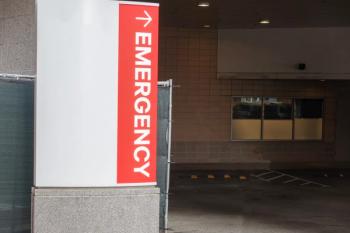
As proposed Indiana hospital merger faces opposition, a warning of a closure without a deal
Union Health and Terre Haute Regional Hospital are hoping to come together. Federal regulators oppose the deal, but HCA Healthcare says Terre Haute could close if the merger is denied.
Union Health and Terre Haute Regional Hospital have been trying to merge for some time, but the two Indiana systems have faced no shortage of obstacles.
Last September,
Once again,
But now, HCA Healthcare, which owns Terre Haute, has said that it could consider closing the hospital if state officials don’t sign off on the merger.
The Indiana Department of Health is still weighing the merger application. The health systems are seeking a “Certificate of Public Advantage” from the state that would allow the deal to move forward.
Even with HCA raising the prospect of the possible closure of Terre Haute Regional, Indiana Attorney General Todd Rokita remains opposed to the deal, arguing that someone else would be better suited to acquire the hospital.
"Our Office maintains that Regional is an attractive target for another buyer that is not a rival competitor in the same market,” a spokesperson for the attorney general’s office wrote in an email to Chief Healthcare Executive®.
Union Health, a nonprofit system, operates its main hospital in Terre Haute, as well as a critical access hospital in Clinton, Indiana. Terre Haute Regional is a 278-bed hospital. Union Health and Terre Haute operate the only two hospitals in Indiana’s Vigo County.
Steve Holman, president and CEO of Union Health, continues to make the case for the merger. In a
“Union Hospital and Regional Hospital have a demonstrated history of being committed to doing what is best for the health and well-being of the people that call the Wabash Valley home,” Holman said.
Union Health says it is pledging to invest at least $117 million to expand access to care, including hiring more than 30 new primary and specialty care providers.
In response to concerns about higher prices in the wake of a merger, Union Health argues that prices shouldn’t be affected, and noted that health insurance plans set the vast majority of prices for services.
Nonetheless, federal regulators have repeatedly pointed to the prospect of higher prices in their objections to Terre Haute Regional joining Union Health. The FTC also says a merger would lead to a decline in the quality of care.“The proposed merger is likely to lead to higher costs and worse healthcare outcomes for Indiana consumers, as well as lower wage growth for hospital workers,” the FTC said in a
Yale economist Zack Cooper has projected that a merger of Union Health and Terre Haute Regional would raise commercial healthcare prices by between 10% and 30%. Cooper has also forecast that nurse salaries would drop by 5%, and 500 jobs in the region would be lost.
Cooper says the merger application contains the same deficiencies as the previous effort. He tells Chief Healthcare Executive® that he's surprised the two sides are still pursuing the deal.
"The nature of the deal didn't change," Cooper says. "They used maybe some fancier language. But the deal that was always going to raise prices is still going to raise prices. The deal that was always going to hurt local workers is still going to hurt local workers. The deal that was going to make quality worse is still going to make quality worse."
The FTC has asked Indiana officials to reject the application for the certificate of public advantage, describing it as an attempt to circumvent antitrust review.
Federal regulators have repeatedly criticized hospitals for pursuing mergers via such state certification. Regulators contend that such certification doesn’t allow for sufficient scrutiny, and
The FTC has approved plenty of hospital mergers in recent years, but federal regulators have
Hospital industry analysts have said




















































































